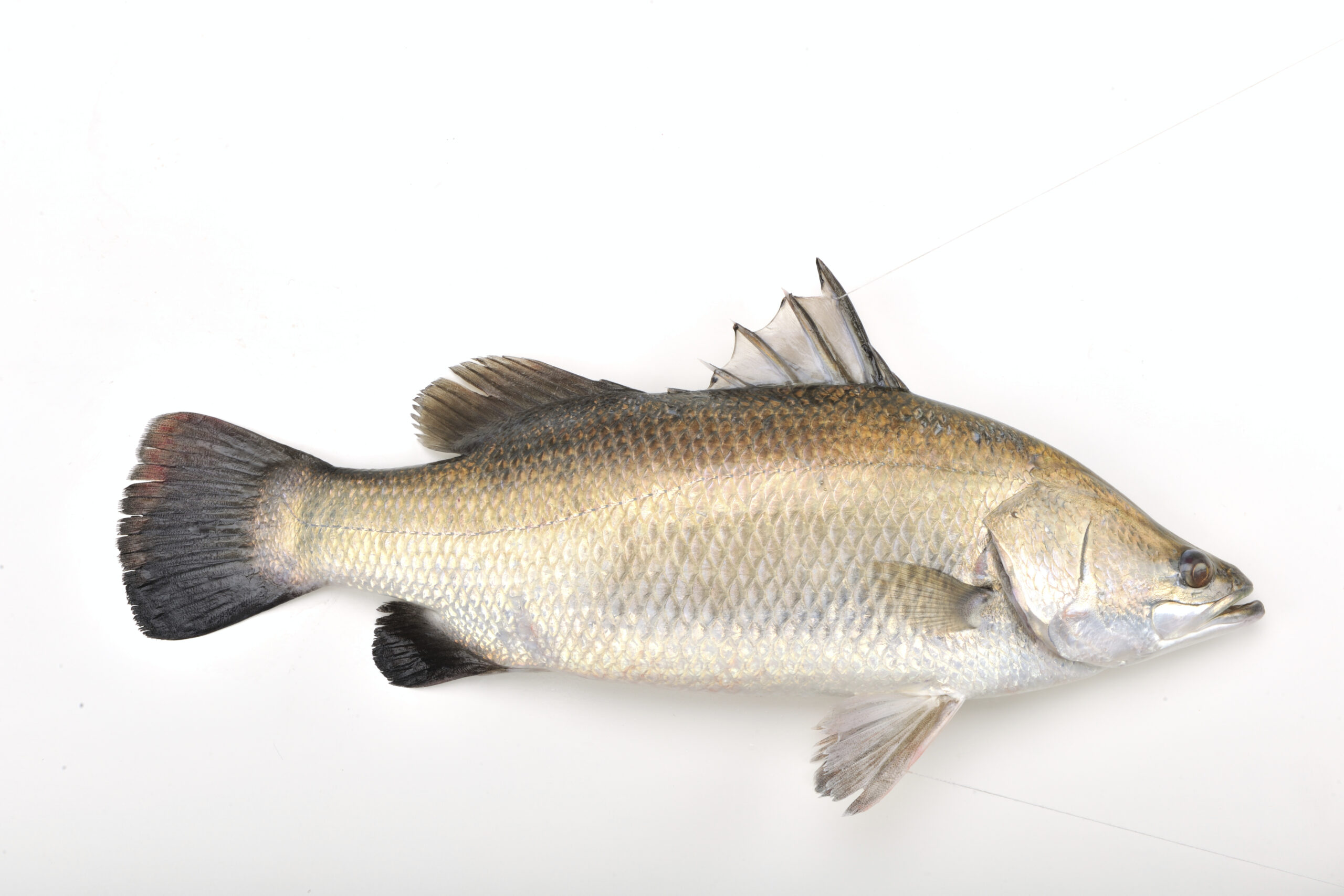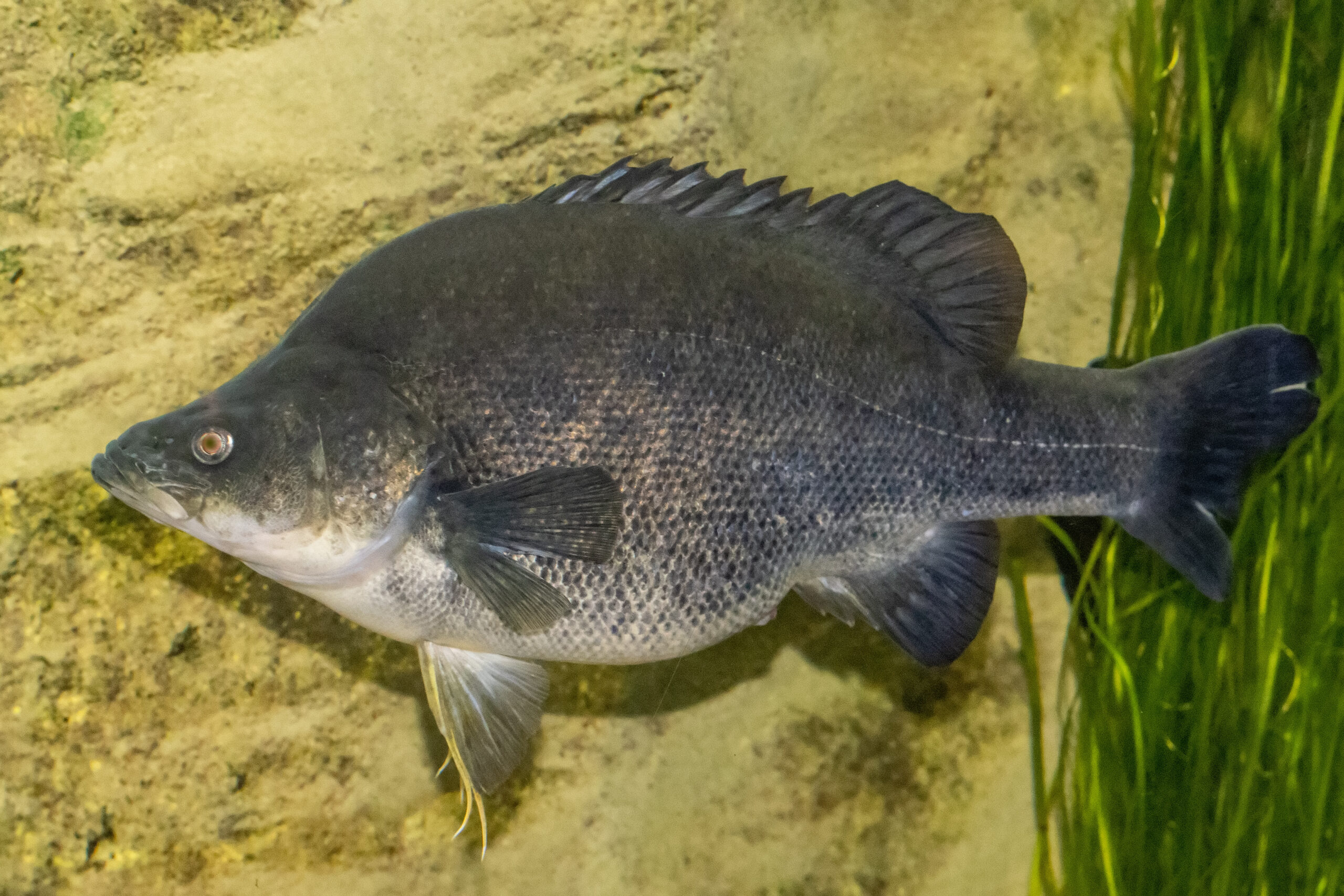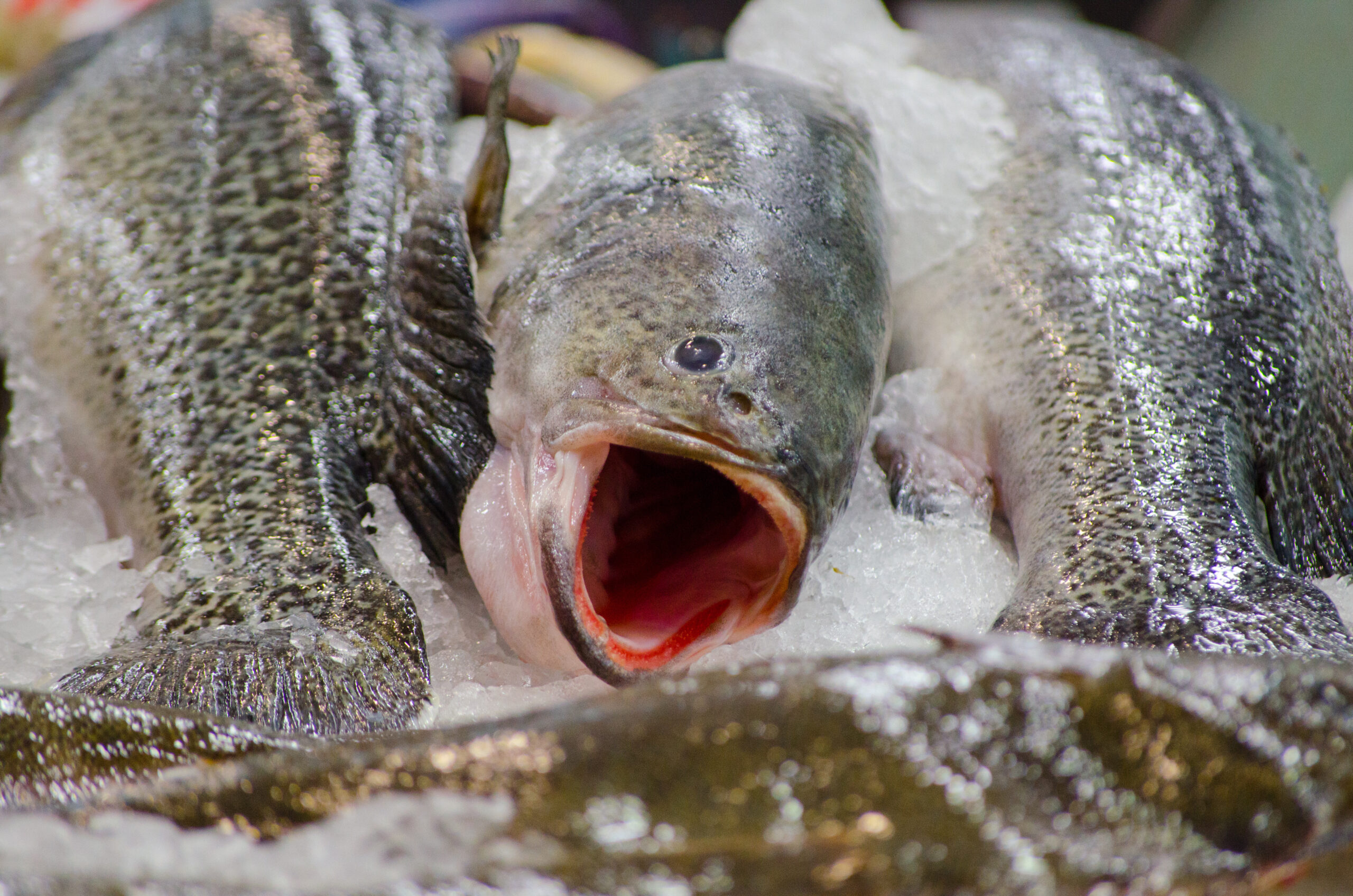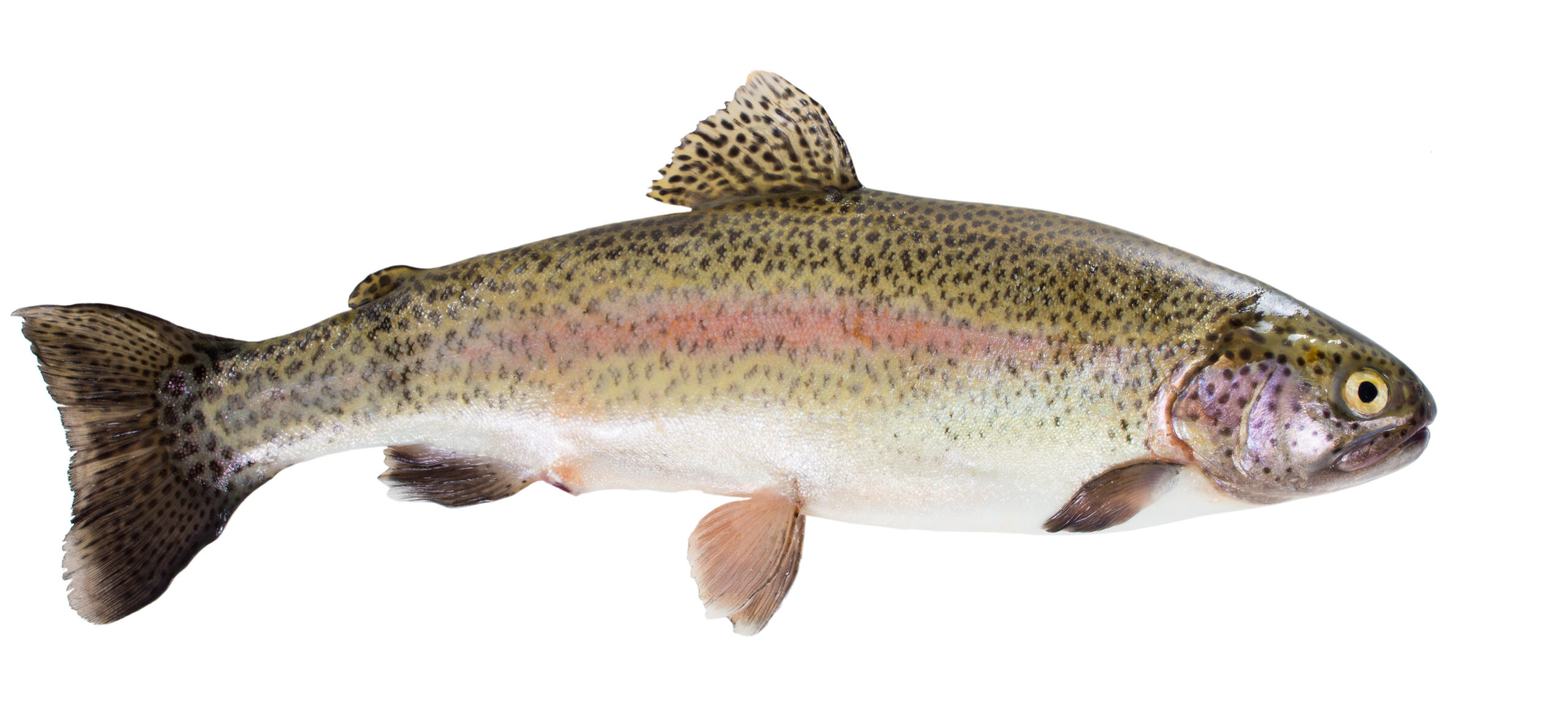Selecting the best fish for your farm dam will depend on many factors, including the size of your dam, the depth of your dam, and your personal preference regarding why you want to farm fish in the first place.
If you will be using a dam or dams that you already have on your property, then perhaps the type of fish you select will be determined by whether you are prepared to alter the dam to suit the fish or would like to find suitable fish that will thrive in your current dam with minimum adjustments.
Either way, we cover various fish in this, mostly those species that are readily available for stocking dams in New South Wales and Victoria. However, the sections we cover on habitat can be applied to just about any freshwater fish species worldwide. Therefore, if the species of fish you are interested in is not covered here, we suggest you do your own research to ensure your preference will be suitable for the environment you are bringing it into. Further, you also want to make sure your preference is a legal option for you.
The fish that we recommend, which are the most common species used to stock dams, include Silver Perch, Golden Perch, Murray Cod, Eel-tail Catfish and Rainbow Trout. I will cover each of these briefly below, however you can find out more about these species in my book, "Fish For Farm Dams".
Silver Perch - Bidyanas bidyanus

Silver Perch are a medium-sized species which are endemic to the water ways in south-eastern Australia. They are a hardy fish, and are the only omnivorous species that we cover here. Omnivorous means that, like humans, they eat both plants and animals. These fish can therefore be useful in cleaning up weeds in your dams; and they are also less likely to consume their own young.
Silver Perch would be ideal for you if you have a small dam, or if building your dam, don't intend on developing a very large dam for the purpose of fish farming. They can handle a fair range of cold and warm temperatures, and live to about 20 years in age, usually ready for fishing and eating after around 2 years.
Please be aware that Silver Perch are listed as a vulnerable fish species, and it is therefore illegal to take them from any river or stream in the Murray-Darling Basin. However, they are readily available to purchase from privately stocked dams.
Golden Perch - Macquaria ambigua

Murray Cod - Maccullochella peelii

Murray Cod is the largest fresh water fish in Australia, and among the largest in the world, naturally found in the Murray-Darling river system. Due to their large size, you will need a good-sized dam if you would like them to reach their potential. The largest on record grew to 1.8m and 113kg in weight!
This is a fish with a long life span, with the oldest documented at 48 years old, although there is belief that they can live longer than that. These spectacular fish are predatory, and will eat almost anything smaller than themselves, so it is NOT recommended that you mix them with other fish. Murray Cod can be eaten at the 2 year mark and beyond, just like perch.
Murray Cod are exciting to catch due to their aggressiveness and sheer weight and size.
Eel-tail Catfish - Tandanus tandanus
![Eel-tailed Catfish for farm dams By fir0002flagstaffotos [at] gmail.comCanon 20D + Tamron 28-75mm f/2.8 - Own work, GFDL 1.2, https://commons.wikimedia.org/w/index.php?curid=1240536](https://fishforfarmdams.com.au/wp-content/uploads/2023/09/Eel-tail_catfish.jpg)
The Eel-tail Catfish is another freshwater fish native to the Murray-Darling river system of eastern Australia, and is also commonly known as dewfish, jewfish, tandan (their aboriginal name) and freshwater catfish. Don't let their strange appearance put you off, Eel-tailed Catfish are quality tasting and are even considered by some to be the finest freshwater fish of all to eat.
Eel-tail Catfish live up to about 8-10 years old and on average weigh up to 1.8kg although some reports have seen them grow to 6kg. This is a fish that is very tough and can survive in shallower dams and are the only species I can guarantee that they will breed in farm dams, so long as they have adequate nesting materials available.
One thing you will need to be mindful about with Eel-tailed Catfish is when handling the fish or swimming in a dam stocked with these fish, is that they have sharp serrated dorsal- and pectoral-fin spines which are venomous and can deliver a rather painful sting, which I can share first hand is not a pleasant experience! They do, however, usually try their best to avoid human contact.
Rainbow Trout - Oncorychus mykis

Rainbow Trout are a magnificently coloured and highly desired sporting fish that are known for leaping out of the water when hooked. Although not an Australian native (they are from Asia and North America), Rainbow Trout are still a fabulous fish for stocking in dams in Australia.
These fish do not reproduce in dams and have a much shorter life span than other species (approx. 5 years); however, they are by far the quickest growing fish you will come across, reaching edible sizes well within the first year of growth. They do prefer colder temperatures though, so need to be stocked in deeper dams so they can get down low where it is cooler, especially in warmer climates.
Rainbow Trout are a very popular fish for growing in farm dams as well as backyard aquaponics systems, especially because of their excellent growth rates allowing you to catch them and eat them much sooner than other recommended fish for farm dams.
Summary
Before selecting your fish, you may want to first look at the dam you are looking to grow your fish in and then select fish that are suitable for stocking in that dam. Otherwise, if you're starting from scratch you can select your preferred fish and then create the dam that is required for the success of that type of fish.
Here is a brief summary of the highlights of each of these fish to help you with your decision making:
- - Murray Cod and Golden Perch are a larger, more aggressive fish that are more exciting to catch, and provide more meat for eating.
- - Silver Perch are an excellent and popular fish to grow in small farm dams as they are a smaller fish and don't require so much space. These fish are also not aggressive and will eat vegetation in your dam and less likely to devour their young.
- - Eel-tailed Catfish are great eating and easy for breeding and growing in smaller, shallower dams.
- - Rainbow Trout are pretty fish, fun to feed and catch, and fast growing so can be eaten within their first year.
Good luck with choosing the right fish for you and your family for growing in your farm dam. If you would like more information, check out our book, "Fish For Farm Dams".
